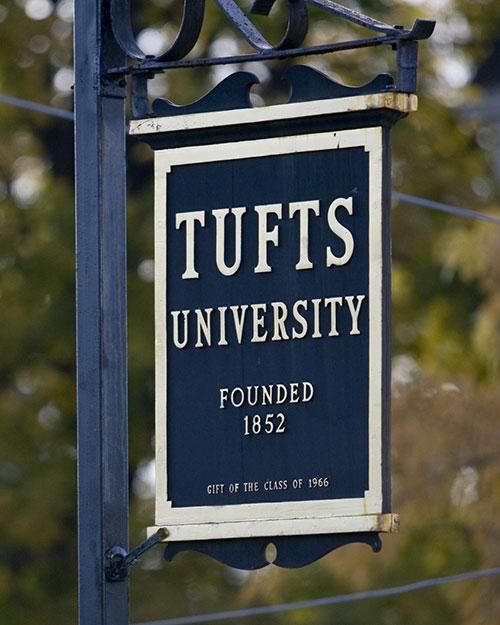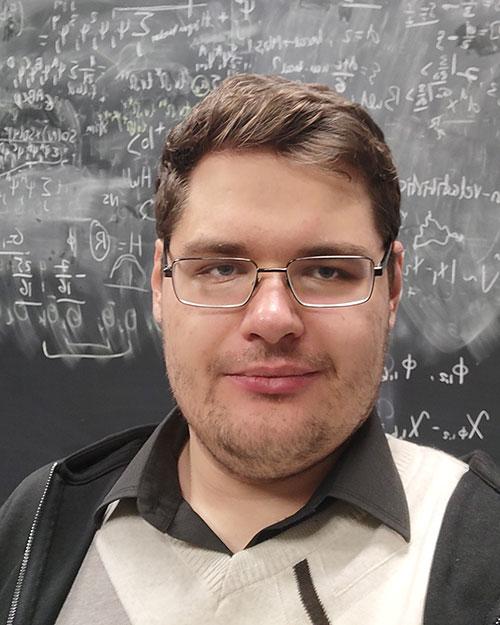Postdoctoral Research Associates

Daniel Jiménez Aguilar
Advisors: Mark Hertzberg, Ken Olum
Area of Study: Cosmology
My research interests lie in the fields of theoretical cosmology and general relativity. In particular, I am intrigued by cosmic inflation, bouncing cosmology, topological defects, black holes, modified gravity and dark energy, and also by the possibility of describing the early and late expansion epochs of the universe in a unified picture. Currently, my investigations focus on the dynamics of cosmic strings and domain walls, dark energy models and the problem of initial conditions for inflation.

Sam Cutler
Advisor: Danilo Marchesini
Area of Study: Galaxy Evolution
I am the photometric catalog lead for the JWST Cycle 4 MINERVA program and one of the primary developers of the Aperpy code. In terms of science, I am interested in how galaxies evolve, namely what processes drive galaxies to quench star formation. Using the MINERVA catalogs, I will be searching for previously-unknown populations of galaxies and ultimately measuring the dust gradients of massive quiescent galaxies across cosmic time.


Martin Klassen
Advisor: Hugo Beauchemin
Area of Study: High Energy Physics
My research interests focus on experimental particle physics, with an emphasis on precision measurements of the Standard Model. In particular, my current research centers on weak boson production with associated jets, studied within the ATLAS experiment at CERN.

Jessie Micallef
Advisor: Tartiree Wongjirad
Area of Study: Particle Physics and Machine Learning
Dr. Jessie Micallef (she/they) is a postdoc scholar at Tufts University, where they use machine learning to help uncover more information about neutrino particle properties and how this can give better insight into our universe. They live and work at Fermilab (Illinois), which is the site for the two neutrino experiments that they are currently part of: DUNE and MicroBooNE. Jessie enjoys mentoring students and empowering a diverse group of next generation researchers in STEM. Outside academia, they enjoy creative writing, practicing jiu jitsu, cuddling their cat Ahsoka, and attending comic cons and cosplaying.

Kamil Serafin
Advisor: Peter Love
Area of study: Quantum Field Theory
Dr. Kamil Serafin develops Hamiltonian renormalization methods that can be utilized across various areas of quantum physics. The general framework that is used is called similarity renormalization group (SRG), which in one of its incarnations is called renormalization group procedure for effective particles (RGPEP). Renormalization is intimately related to the concept of effective theories, and it is one of the goals of Dr. Serafin to discover relations between more fundamental models of Nature that we have, e.g., standard model of particle physics, and more effective, emergent models, such as constituent quark model of hadrons or shell model in nuclear physics. At least in principle, it should be possible to derive all of quantum physics from the standard model using RGPEP.
At Tufts University Dr. Serafin is working in Prof. Peter Love's group on computing renormalized, effective Hamiltonians of quantum field theories, including quantum chromodynamics. Among other things, these Hamiltonians can be used as an input to simulations performed on quantum computers. The group develops quantum algorithms necessary to perform such simulations as well as explores other possible applications of SRG and RGPEP in quantum information and atomic physics.

Oleksandr Stashko
Advisor: Mark Hertzberg
Area of Study: Cosmology
My research focuses on the properties of compact objects in General Relativity and alternative theories of gravity. This includes classical and quantum radiation from black holes, quasinormal modes, stability analysis, spectral properties, and observational signatures in the electromagnetic spectrum.

Qingfeng "Kee" Wang
Advisor: Peter Love
Area of study: Quantum Computing
My research interests lie in the field of quantum computing, with a focus on quantum simulation and quantum algorithms for near-term quantum devices. I am particularly interested in developing efficient methods for simulating fermionic systems and in exploring experimental demonstrations of quantum algorithms. Currently, I am a Postdoctoral Researcher in the Department of Physics and Astronomy at Tufts University, working with Peter Love. I completed my Ph.D. in Physics at the University of Maryland, College Park. I am also intrigued by the connections between quantum computing and metaphysical questions, exploring how concepts from quantum theory might inform broader philosophical perspectives.